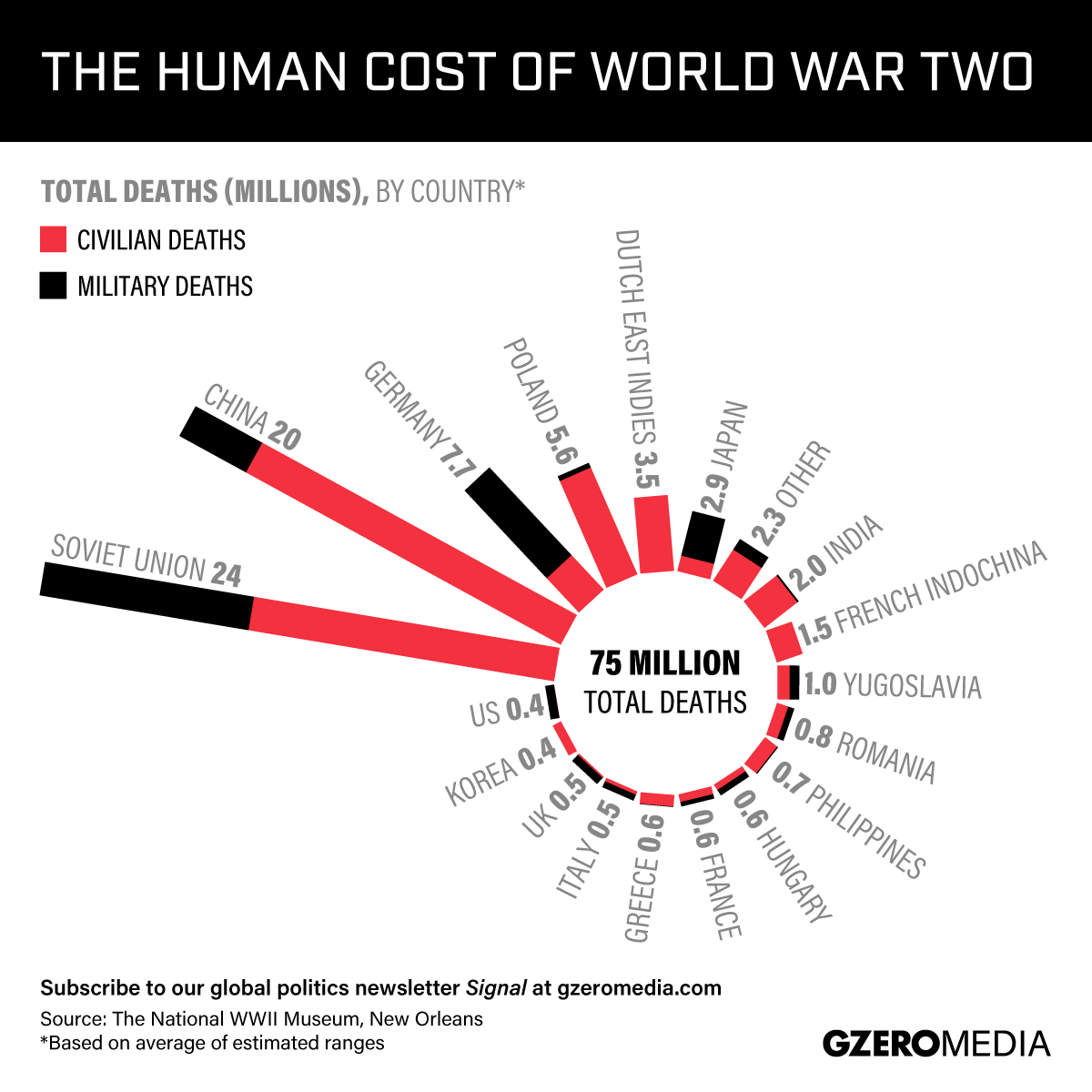June 05, 2019
Seventy-five years ago this Thursday, more than 160,000 Allied troops stormed the beaches of Normandy in Northern France, beginning the liberation of Western Europe from Nazi Germany in World War II. As allies and former enemies pay tribute to the dead and honor a dwindling band of surviving D-Day veterans this week, we are mindful of the broader panorama of suffering that the Second World War inflicted on nations across the globe. Here is a look at total military and civilian deaths, by country.
.
More For You
An explosion in Sanandaj, Kurdistan province, Iran, amid the U.S.-Israeli conflict with Iran, in this still image from a social media video released on March 5, 2026.
Social Media/via REUTERS
Two Iranian drones hit Azerbaijan, Iran’s northern neighbor, on Thursday, injuring four people and expanding the Iran conflict onto another front.
Most Popular
Chris, an Army veteran, started his Walmart journey over 25 years ago as an hourly associate. Today, he manages a Distribution Center and serves as a mentor, helping others navigate their own paths to success. At Walmart, associates have the opportunity to take advantage of the pathways, perks, and pay that come with the job — with or without a college degree. In fact, more than 75% of Walmart management started as hourly associates. Learn more about how over 130,000 associates were promoted into roles of greater responsibility and higher pay in FY25.
© 2025 GZERO Media. All Rights Reserved | A Eurasia Group media company.
